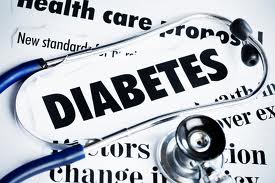Preventing Type 2 Diabetes
Reviewed by Robert Ehrman, MD
 You may know that type 2 diabetes is on the rise around the world. If you have a family history of diabetes or are overweight, you might be wondering if there is a way to prevent or delay the onset of the disease. Luckily, there are a few lifestyle changes that have been proven to lower your risk. Read on to find out more about type 2 diabetes and how to prevent it.
You may know that type 2 diabetes is on the rise around the world. If you have a family history of diabetes or are overweight, you might be wondering if there is a way to prevent or delay the onset of the disease. Luckily, there are a few lifestyle changes that have been proven to lower your risk. Read on to find out more about type 2 diabetes and how to prevent it.
What is type 2 diabetes?
Once called “adult-onset diabetes,” type 2 diabetes is the most common type of diabetes. About 95% of people with diabetes have type 2, and you can develop it at any age (even as a child). However, this type of diabetes occurs most often in middle-aged and older people who are overweight. People who are inactive are also more likely to develop type 2 diabetes, even if their weight is in the normal range.
People with diabetes have a problem getting glucose from food into their body cells. With the help of the hormone insulin, glucose moves from the bloodstream into cells, where it is used for energy. This process does not happen normally in people with diabetes and prediabetes.
Insulin resistance
Type 2 diabetes and prediabetes usually begin with insulin resistance, a condition in which your body’s cells do not use insulin very well. As a result, your body needs more insulin to help glucose enter cells. At first, your pancreas is able to keep up with the added demand by making more insulin. But, over time, your pancreas is not able to make enough, which leads to high blood glucose.
Can type 2 diabetes be delayed or prevented?
Yes. The results of the Diabetes Prevention Program (DPP) have proven that weight loss through changes in diet and physical activity can delay or prevent type 2 diabetes. The DPP was a study that showed that even a 5 to 7 percent weight loss, which for a 200-pound person would be 10 to 14 pounds, slowed the development of type 2 diabetes. If you have a family history of diabetes, or have been told by a healthcare provider that you are insulin resistant, be sure to work healthy eating and more physical activity into your life as soon as possible.
What are the symptoms of type 2 diabetes?
 The symptoms of type 2 diabetes can be so mild that you might not even notice them. Nearly 7 million people in the United States have type 2 diabetes and don’t know it. Many have no symptoms at all. However, if you notice any of the following, make an appointment to see your healthcare provider as soon as possible:
The symptoms of type 2 diabetes can be so mild that you might not even notice them. Nearly 7 million people in the United States have type 2 diabetes and don’t know it. Many have no symptoms at all. However, if you notice any of the following, make an appointment to see your healthcare provider as soon as possible:
- Increased hunger and/or thirst
- Feeling very tired all the time
- Increased urination, especially at night
- Unexplained weight loss
- Blurred vision
- Numbness or tingling in your hands or feet
- Sores or cuts that do not heal
Many people do not find out they have the disease until they have diabetes-related problems (called “complications”), such as blurred vision or heart trouble. If you find out early that you have diabetes, you can get treatment to prevent the damage it can do to your body.
When should you be tested for diabetes or prediabetes?
Anyone over the age of 45 should think about getting tested. If you are 45 or older and overweight—see the Body Mass Index (BMI) chart—getting tested is something you should do. If you are younger than 45, overweight, and have other risk factors, you should also think about getting tested. Ask your doctor for an A1C test, a fasting blood glucose test, or an oral glucose tolerance test.
Your doctor will tell you if you have normal blood glucose, diabetes, or prediabetes. If you are told you have prediabetes, there are steps you can take to prevent type 2 diabetes.
What is prediabetes?
Having prediabetes means your blood glucose is higher than normal but not high enough to be called diabetes. This is a very common condition— experts believe that nearly 80 million Americans adults have it. Having prediabetes also means you are at risk for getting type 2 diabetes and heart disease. However, you can lower your risk for diabetes, and even return blood glucose levels to normal, by losing a little weight through healthy eating and being more physically active.
Even if you are at a normal weight, you should try to be more active, sleep well and lower your stress level every day. Inactivity (not moving enough) and stress (from bad sleep, emotional problems, allergies, an unhealthy diet, injury, etc.) are major risk factors for diabetes.
What factors increase your risk for type 2 diabetes?
To find out your risk for type 2 diabetes, check each item that applies to you. The more you check, the higher your risk.
- I am 45 or older.
- I am overweight or obese.
- I have a parent, brother, or sister with diabetes.
- My family background is African American, Alaska Native, American Indian, Asian American, Hispanic/Latino, and/or Pacific Islander.
- I have had gestational diabetes.
- I gave birth to at least one baby weighing more than 9 pounds.
- My blood pressure is 140/90 or higher (or, I have been told I have high blood pressure).
- My LDL (bad cholesterol) is high; my HDL (good cholesterol) is below 35; or my triglyceride level is above 250.
- I am fairly inactive.
- I have PCOS (Polycystic Ovary Syndrome).
- I have a history of heart disease.
- I have an A1C level of 5.7 to 6.4 percent; impaired fasting glucose (IFG); or impaired glucose tolerance (IGT).
- I have a condition called acanthosis nigricans, or dark, velvety rashes around my neck or armpits.
Does sleep really matter?
 Yes. Studies show that untreated sleep problems, especially sleep apnea, can increase your risk for type 2 diabetes. Sleep apnea is a common disorder in which you have pauses in breathing or shallow breaths while you sleep. Most people who have sleep apnea don’t know they have it.
Yes. Studies show that untreated sleep problems, especially sleep apnea, can increase your risk for type 2 diabetes. Sleep apnea is a common disorder in which you have pauses in breathing or shallow breaths while you sleep. Most people who have sleep apnea don’t know they have it.
Night shift workers and others who have problems with daytime sleepiness or trouble sleeping may also be at increased risk for obesity and type 2 diabetes. If you think you might have sleep problems, ask your healthcare provider for help as soon as possible. Good quality sleep will improve your health in many ways, even if you don’t have diabetes.
How can you reduce your risk for type 2 diabetes?
You can do a lot to reduce your risk. Being more physically active, reducing trans fats (an unhealthy type of fat) and calorie intake, and losing a little weight can help you lower your chances of getting type 2 diabetes. Taking the diabetes medicine metformin can also reduce your risk, especially in younger and heavier people with prediabetes, and women who have had gestational diabetes. Lowering blood pressure and cholesterol levels can also help you stay healthy. The best way to achieve this is to take these steps:
- Reach and maintain a reasonable body weight. Even a 10-15 pound weight loss makes a big difference.
- Make healthy food choices most of the time.
- Be physically active every day, if you are not already.
- If your blood pressure is high, reduce stress and alcohol intake, and ask your doctor if you need medicine to control it.
- If your triglyceride level is high, take the above steps and ask your doctor if you need medicine to control it.
- If you have PCOS, thyroid or adrenal problems, work closely with a hormone specialist (an endocrinologist, for example) who can help you treat them.
Won’t it be hard to make all of these changes?
For many people, making big changes can be stressful and overwhelming. You can make it easier on yourself by taking these steps:
- Make a plan to change one behavior at a time.
- Decide exactly what you will do and give yourself a timeframe in which to achieve it.
- Think about what might prevent you from reaching your goals, and ask for help when you need it.
- Find family and friends who will support and encourage you.
- Decide how you will reward yourself (a shopping trip, movie tickets, or an afternoon in the park) when you achieve your goals.
- Remember that a doctor, pharmacist, dietitian, counselor or diabetes educator can help you make plans and stick to them.
What about exercise?
Regular physical activity helps with many diabetes risk factors. Moving more helps you lose weight and keep your blood glucose, blood pressure, and cholesterol under control. It also helps your body use insulin better. People in the DPP who were physically active for 30 minutes a day, 5 days a week, lowered their risk of type 2 diabetes. Many chose brisk walking as their physical activity, which tells us that you don’t have to do very hard exercise to get the benefits.
If you have not been active in a while (or ever), you should start slowly. First, talk with your healthcare provider about what kinds of physical activity are safe for you to do. Make a plan to increase your activity level toward the goal of being active for at least 30 minutes a day, most days of the week.
Start an exercise program.
Pick exercises that are fun for you. Try finding a friend to walk with you, join a fun exercise class, or work out with online videos. You should do a mix of aerobic activities and strength training every week. Aerobic (“cardio”) exercise increases your heart rate, which improves the health of your lungs, heart and blood vessels. Strength training builds muscle, which burns calories and helps your body use up excess blood glucose.
 Examples of aerobic exercise:
Examples of aerobic exercise:
- Running
- Jogging
- Swimming
- Brisk walking
- Cycling
- Power yoga
- Kickboxing
- Dance
Examples of strength training:
- Weight lifting
- Pilates
- Gentle yoga
- Bodyweight exercises, like squats and planks
Increase your daily activity.
If a formal exercise plan isn’t for you, don’t worry. There are other ways to increase your level of physical activity:
- Get off the bus a few stops early and walk the rest of the way.
- Take the stairs instead of the elevator.
- Park at the far end of the lot and walk.
- Only watch TV or use the Internet for entertainment when you’re on a treadmill, doing squats or lifting weights.
- Walk or ride your bike instead of driving whenever you can.
Will you need to take medicine?
Some people need medicine to help control their blood pressure, blood glucose or cholesterol levels. If you do, take them as directed. Taking medicine does not mean that you have failed at staying healthy. It just means that you need some extra help to prevent bigger problems from happening in the future. Your healthcare provider might give you metformin, which is a medicine that makes insulin work better and can reduce your type 2 diabetes risk.
What should you eat to stay healthy?
 Most people know that their food choices play an important role in preventing or delaying diabetes, but everyone’s needs will be a little bit different. You can get help from a dietitian or join a weight loss program to support you while you reach your goals.
Most people know that their food choices play an important role in preventing or delaying diabetes, but everyone’s needs will be a little bit different. You can get help from a dietitian or join a weight loss program to support you while you reach your goals.
Remember: when making a meal plan, make sure that it suits your taste preferences, culture, schedule, and health goals. If you have to ignore any of these factors to fit in a meal plan, you are not likely to stick with it. Here are a few tips to get you started:
- Know the serving sizes of the foods you eat, and be sure to eat less than the number of calories your body burns each day. There are many online tools to help you figure out a daily calorie goal.
- Eat more fruits and vegetables at every meal.
- Try using smaller plates and utensils.
- Limit your processed food and trans fat intake.
- Talk to your healthcare provider about whether you should drink alcohol, and if you can, how much you can have each week.
- Write down what you eat and how much physical activity you get. People who keep track are more likely to lose weight.
- When you meet your goals, reward yourself with a non-food item or activity, such as a shopping trip or movie.
Do you need to take supplements?
If you want to try supplements, it’s important to talk to a healthcare provider who knows a lot about them. He or she will know which brands are safe and effective, and should keep a close eye on your health to see if they work for you (and are worth the cost!). It’s also important to ask if it’s safe to take any supplements with your prescription medicines.
One supplement that has been shown to work for people with diabetes is vitamin D. Past studies have shown a link between people’s ability to maintain healthy blood glucose levels and having enough vitamin D in their blood. However, it is not yet know exactly how much vitamin D you should take to prevent type 2 diabetes. The Institute of Medicine, the agency that recommends supplementation levels based on current science, offers the following guidelines for daily vitamin D intake:
- People aged 1 to 70 may need 600 IU (International Units).
- People aged 71 or older may need as much as 800 IU.
- You should not take more than 4,000 IU each day.
To help ensure your safety and good health, you should always discuss your use of supplements with your healthcare provider before you start taking them.

